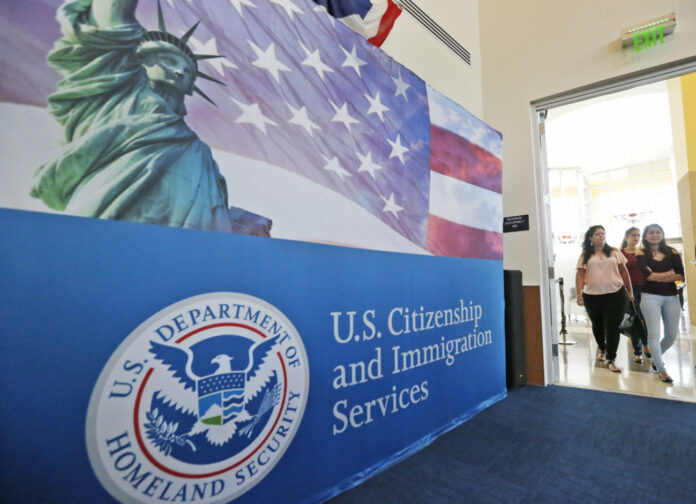Officials with the U.S. Citizenship and Immigration Services said they will be forced to furlough as many as 13,000 employees beginning in August if Congress does not provide more than $1.2 billion to cover a budget shortfall.
The USCIS is the agency tasked with administering the country’s naturalization and immigration system.
Citing COVID-19, as well as policy changes from the Trump administration with regard to legal immigration, USCIS officials said an emergency $1.2 billion is the infusion the department would need from Congress to avoid sending up to 80% of its workers home for an extended period of time.
Last Thursday, the deputy director for the USCIS, Joseph Edlow, released a prepared statement on behalf of the department that addressed the fiscal shortfall and its potential impact, citing in part a drop in submitted applications.
“The effects of the coronavirus pandemic are long reaching and pervasive, leaving few unscathed in its wake. USCIS is still experiencing those very effects, which began with an alarming drop in applications at the end of March. Forecasts predict a crippling budget shortfall that requires assistance from Congress to allow USCIS to maintain current operations,” Edlow said in the release.
Edlow’s statement adds that since May, his department has been in communication with members of Congress to explain the current financial situation and how to address it. Specifically, the USCIS proposed the amount needed to pay the staff that would be affected by the furlough.
“Recognizing the need to not let taxpayers carry this burden, USCIS’ proposal to Congress includes a requirement that any funding provided by Congress will be paid back to the U.S. Treasury,” Edlow stated in the release.
He reiterated in the release that without congressional action before Aug. 3, USCIS will need to furlough over 13,000 staff members, “which will have tremendous negative impacts on our mission administering our nation’s lawful immigration system, safeguarding its integrity, and protecting the American people.”
Edlow urged Congress to provide the funding needed to pay staff and ensure that USCIS operations continue uninterrupted.
In addition to the drop in applications due to COVID-19, representatives with the Migration Policy Institute stated that the Trump administration’s implementation of vetting protocols used to mitigate fraud on applications has led in part to “significant declines in immigration petitions and fee revenues.”
“USCIS has more than doubled spending on vetting applications and immigration benefit fraud, though has not offered evidence indicating undetected levels of fraud exist. Amid the resulting slowdown in processing, the agency’s backlog of pending cases has swelled by more than 1 million, and processing times for most types of petitions have increased,” the MPI stated in the release.
Edlow explained that the majority of the department’s operations rely specifically on fees paid by applicants and petitioners — not through taxes.
“Due to the COVID-19 pandemic, USCIS has seen a 50% drop in receipts and incoming fees starting in March and estimates that application and petition receipts will stay well below plan through the end of Fiscal Year 2020. In the past few months, USCIS has taken action to avert a fiscal crisis, including limiting spending to salary and mission-critical activities,” Edlow stated.
Finally, Edlow states that the $1.2 billion infusion from Congress would be paid back by USCIS by charging an additional 10% surcharge on applications.





